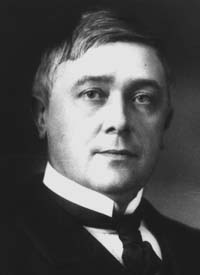“The ant,” says the fable, “does not lend.” That is true, she does not lend, for to lend is but the gesture of the miser; she gives without reckoning, and she never asks for repayment. She possesses nothing, not even the contents of her own body. She hardly thinks of eating. What does she live on? It is difficult to say: on the atmosphere, on diffused electricity, on vapours or effluvia. A drop of dew will fill her individual stomach. She is nothing but an organ of charity. An indefatigable worker, ascetic, chaste, virgin, neuter - that is to say, sexless - her sole pleasure is to offer, to whomsoever will partake of it, the whole fruit of her labours.
But is not our interpretation of all the foregoing actions too human?
For the moment, it is interesting to note that the three insects whose civilisation is vastly superior to that of all others possess a social or collective organ, which, if not identical, performs analogous functions. Is there some relation between more or less complete altruism of this organ and the degree of civilisation attained by the three insects?
Let us supposed for a moment that we possessed a more or less analogous organ. What would humanity be had it no other care, no other ideal, no other aim in life than selfless giving and the happiness of others; if to work solely for one’s neighbour, to sacrifice oneself permanently and wholly, were the only possible joy, the essential felicity; in a word, the supreme bliss, of which we perceive only a fugitive gleam in the arms of love?
Unhappily we are so made that the very contrary of this is true. Man is the only social animal to possess no social organ. Is this the reason why his socialism and communism are precarious and artificial? It is impossible for us to live otherwise than centripetally, whereas the ants are naturally centrifugal. The pivots of our lives turn in contrary directions. With us all is necessarily, organically, inevitably egoistic. By giving we exceed the law of our being; we betray ourselves, by an effort which makes us emerge from our proper state, and which we call an act of virtue. In the ant all is otherwise: it is in sacrificing herself, in lavishing herself that she follows her natural bent; it is in refusal that she conquers herself and transgresses her instinctive altruism. The poles of the two moralities are inverted.
We too possess an altruistic organ, but on a different plane. This organ is in our mind, and sometimes in our heart; but since it is not physical it is without efficacy. Will the function, will the moral, spiritual urge end, as the transformists believe, by creating the material organ? It is not impossible. Nature, with the complicity of the centuries or the millennia, may be capable of miracles for which we dare hardly hope. Nevertheless, it must be confessed that today the miracle seems less imminent than of old; that many periods have been more generous of our own. The religions were, so to speak, the rough sketch, the rudiments of an altruistic and collective organ, which promised, in another world, the joys which the ant experiences by giving herself in this world. We are now in the act of extirpating them, and nothing is left us but the egoistic and individual organ of the mind, which may one day surpass itself and shatter the circle that confines it; but God alone knows when.
